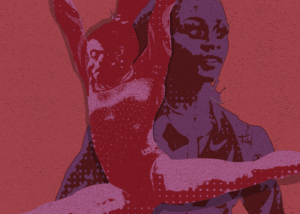Millions of sports fans often view the activity as an escape from the issues that divide our society. Sports provide a window of time in which individuals can place their political affiliations, race, and gender aside to come together as a collective unit, fans rooting for the success of their respective team. Whenever this space is pervaded by something divisive, such as politics, a visceral and negative reaction is sure to ensue. As such, the belief that discussing politics has no place in the world of sports has become quite widespread. However, looking at the history of these two seemingly independent fields, it becomes evident that there is much more crossover than meets the eye.
Jemele Hill, host of the show SC6 for ESPN, recently made headlines when she tweeted that President Trump “is a white supremacist who has largely surrounded himself w/ other white supremacists.” The tweet was met with an intense wave of criticism, including a response from Trump himself who berated ESPN for “paying a really big price for its politics” and demanding that the company “Apologize for untruth!”. The most common response seemed to be that Hill should “stick to sports”, marginalizing her opinion as uninformed and out of place. The validity of Hill’s claims is not the major issue at hand, rather it is her ability to make such comments in the first place that is causing controversy. Hill has been given a platform by ESPN, whether the company realized it or not, to express her opinions to a larger audience than any ordinary person can. Her actions are justifiable in that she is simply using that platform to bring awareness to something that she perceives to be a form of injustice, similar to the practices of many athletes such as Muhammad Ali and LeBron James.
When Ali stood up against the Vietnam War, he became an outcast in the eyes of most of America. That single action established a foundation for athletes using their image and success for something greater than just “sticking to their sport”. Decades later, LeBron James would wear a shirt displaying the words “I Can’t Breathe,” paying respect to the late Eric Garner, a victim of police brutality. Although the validity of the message was up for debate, there was a marked shift in the amount of people that felt James was within his place to speak up about the issue at all. More and more individuals have come to accept that the beliefs of these athletes come as a package deal with their abilities on the field or court. Is it not time that we award the same courtesy to members of the media such as Hill?
The major roadblock to a world in which media members are free to express such opinions appears to be their employers’ desires to maintain neutrality, making sure that no demographic is alienated from viewing their content. This was evident when Hill, who did not back down from or apologize for her comments, made sure to announce that her comments were not indicative of ESPN’s beliefs. As is protocol, Hill distanced the company from her personal stance. However, ESPN relies on its on air employees to grab the attention of viewers with their personalities. It is paradoxical for the company to profit off the outspoken identities of those like Hill and then try and limit the very people bringing in ratings. If ESPN wished to hire those that simply read off teleprompters and kept their opinions to themselves, it is entirely in their power to do so. By hiring Hill and those like her, sports news companies make the choice to boost their profits by bringing in assets that are highly opinionated and outspoken.
Ultimately, Jemele Hill has not voiced her political opinions on air, nor should she, as that would detract from the primary purpose of viewing the shows she appears on: obtaining news and analysis on sports. However, she, like her co-workers, is under no obligation to pass up the opportunity of using her status as a public figure to speak her mind to a broad audience. Just as we are able to separate Kyrie Irving’s conspiracy theories about the world being flat from his world class ball-handling ability, we must recognize that sportscasters are allowed to have opinions that we disagree with while still appreciating their contributions on air. There is no reason for a political disagreement to be of such magnitude that it distracts from the media’s analysis and reporting. Even if it were to be so, simply changing the channel seems to be an immensely more productive option than going on a Twitter rant calling for someone like Hill to be fired.





